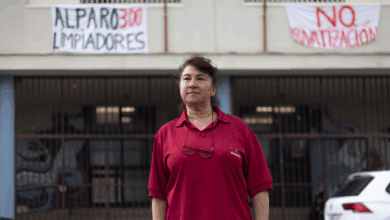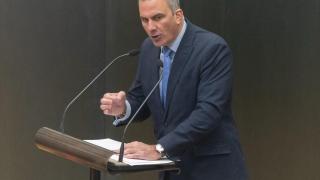
In Spain, the Vox party continues to gain support among the Catholic population, despite heightened tensions with the Catholic Church and a tougher migration policy. Over the past two months, the number of Catholics willing to vote for this political force has increased by more than 300,000.
Party leader Santiago Abascal has recently been increasingly critical of church hierarchs. The latest conflict was sparked by statements from representatives of the Conference of Bishops regarding the ban on Muslim holidays in Jumilla (Murcia). Abascal questioned the Church’s motives, suggesting possible dependence on government subsidies and the influence of scandals related to pedophilia on the episcopate’s stance on migration issues.
Despite the sharp change in tone, Vox’s electorate, which consists largely of believers, has not turned away from the party—in fact, it has grown. According to the latest Sigma Dos poll, if elections were held today, Vox would receive 3.6 million votes, accounting for nearly 15% of those who voted in 2023. Of these, more than 2.6 million identify as Catholics.
The increase in support is particularly noticeable among practicing Catholics. Over two months, the share of such voters among Vox supporters rose from 18.7% to 24.1%, which in absolute numbers means nearly 270,000 more people. Among Catholics who do not attend church regularly, the growth was more modest—about 36,000 new votes. Overall, thanks to both groups, the party gained over 300,000 new supporters.
Experts note that the toughening of migration rhetoric did not deter the Catholic electorate; on the contrary, it attracted new voters. Between June and August, when mass deportations and unrest were being discussed in Murcia and other regions, Vox actively promoted its proposals to restrict migration, which resonated with a significant portion of believers.
Polls show that most Catholics who support Vox consider the issue of migrant integration to be one of the country’s key challenges. More than 65% of practicing Catholics and 70% of non-practicing Catholics agree that there is a serious problem with the integration of newcomers in Spain. Among Vox supporters, this figure reaches 74%. In addition, a significant number of believers are convinced that there are too many migrants in the country, which aligns with the party’s position.
Previously, Spain already had ultraconservative Catholic movements, such as Hazte Oír, which pressured politicians on family and migration issues. However, Vox initially tried to avoid open conflict with the church, preferring to follow a parallel course. Now the situation has changed: the party openly declares that its migration initiatives take priority, even over the church’s traditional values.
At the same time, other major parties, such as the Popular Party (PP), have also toughened their rhetoric on migration, but have not achieved the same level of support among Catholics. The Socialists (PSOE), on the contrary, are losing ground in this group: their support among practicing Catholics has dropped from 20% to 15.5%. Thus, Vox is becoming the main beneficiary of the shift in sentiment among believers.
Santiago Abascal emphasizes that, despite his religious affiliation, he intends to continue advocating a tough migration policy, even if it leads to disagreements with the church. A new phase in the relationship between Vox and the Catholic Church, which both sides had long avoided, has now become a reality — and, apparently, with the approval of a significant part of the Catholic electorate.












